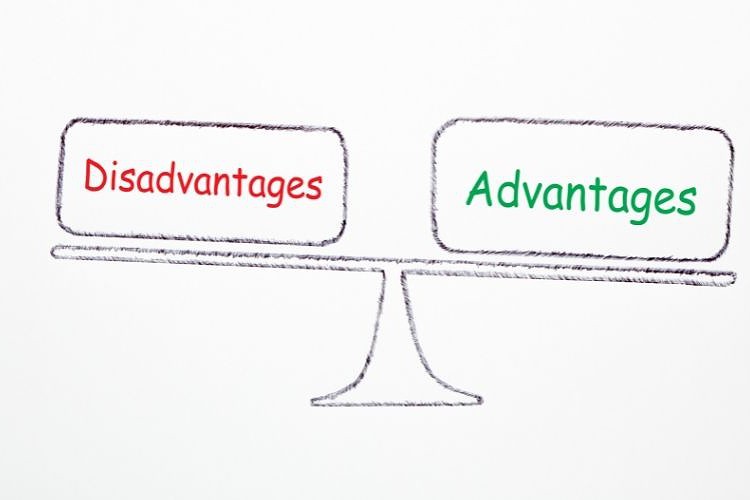You’ve heard of maintenance-free batteries, but what are they, exactly? Are your marine batteries maintenance-free? And what are the pros and cons of using maintenance-free batteries?
Great questions!
In this article, we’ll explore everything you need to know about maintenance-free marine batteries.
Ready to dive in?
Table of Contents
Are Marine Batteries Maintenance-Free?

There are different types of marine batteries. Some are considered maintenance-free, while others require regular maintenance to keep them in good working order and extend their lifespan.
Whether or not your marine battery is maintenance-free depends on the specific type of battery it is. Any battery that requires you to check and replace the battery fluid will require some maintenance.
There are four basic types of marine batteries:
- Lead acid : Lead-acid batteries are the cheapest and most commonly used batteries. There are different types of lead-acid batteries, as we’ll discuss below. Most of them work using battery acid either sealed inside the battery or added from time to time.
Lead-acid batteries have a compartment that holds battery acid, or electrolyte. This electrolyte is free-flowing, making these batteries prone to spilling acid if they are tipped over or handled roughly. The acid is used up and needs to be refilled from time to time. - AGM : Absorbent glass mat, or AGM, batteries are another popular type of marine battery. They are similar to lead-acid batteries but do not use free-flowing battery acid; instead, the acid, or electrolyte, is contained in the battery’s mat.
AGM batteries are spill-proof because the acid is trapped in the glass mat, which absorbs it and keeps it from leaking even if the battery is damaged. - Gel : Gel batteries are similar to AGM and lead-acid batteries, but they contain a couple of additional substances that turn the electrolyte from a free-flowing acid into a gel. This makes these batteries spill-proof and more durable than AGM and lead-acid batteries.
Gel batteries are great for marine applications because they are so durable and can handle a wide range of temperatures. That said, they can be fairly expensive. - Lithium : Lithium batteries are the most expensive types of batteries, but they tend to be the most long-lasting and maintenance-free batteries you can buy.
Lithium batteries work similarly to other batteries, but they can store more energy and use a different type of electrolyte. They are spill-proof and difficult to damage, and they are lightweight to boot.
These batteries need some basic maintenance and care so they reach their full potential. This basic care includes keeping them out of the weather as much as possible, cleaning and drying them immediately if they get wet, and keeping them from over-discharging.
What Is a Maintenance-Free Marine Battery?

So, if all batteries need a degree of maintenance, what is the definition of a maintenance-free battery?
Simply put, a maintenance-free battery is any battery that doesn’t require the addition of fluid regularly.
What Types of Marine Batteries Are Maintenance-Free?
AGM, gel, and lithium batteries are all maintenance-free, but they can get fairly expensive–especially lithium. Lead-acid batteries, as noted above, usually need the fluid added. That said, there are different types that are considered more maintenance-free.
Flooded lead-acid batteries are the standard type, but these all require you to add fluid and regularly check the fluid levels. The ones that are considered maintenance-free are known as sealed lead-acid (SLA) and valve-regulated lead batteries (VRLA).
SLA and VRLA batteries are both designed to be spill-proof and don’t require you to add acid or water, so the resulting level of maintenance required is similar to that of other maintenance-free batteries.
What Are the Pros and Cons of Maintenance-Free Marine Batteries?

Of course, before you choose any new battery, you want to know its benefits and drawbacks. In this section, we’ll explore the pros and cons of maintenance-free batteries so you can make an informed decision before choosing to buy one.
As you might imagine, maintenance-free batteries have many pros. Some of these pros include:
- Lower chance of spills: Because maintenance-free batteries don’t have compartments of free-flowing liquid, they are less likely to leak if they become damaged. Many maintenance-free batteries are marketed as spill-proof for this reason.
Batteries without liquid can generally be mounted in more positions than those with liquid, though you’ll need to find out for your specific battery. For example, some maintenance-free batteries can be mounted on end or on their side, while others can’t. - No harmful fumes: Flooded lead-acid batteries produce a lot of chemical fumes as the battery acid evaporates over time. Maintenance-free batteries, including sealed-lead acid and VRLA batteries, do not produce these chemicals.
For this reason, maintenance-free batteries are great for use in enclosed spaces and a number of marine applications. If they don’t produce fumes, they are less likely to cause fires and poisonings. - Less work: Maintenance-free batteries don’t require as much upkeep as other types of batteries. Yes, they still need to be taken care of, but they don’t require you to regularly check fluid levels and replace them when they get low.
- Generally longer-lasting: Flooded lead-acid batteries tend to have the shortest lifespan of any battery. You can extend their life by adding fluids as needed, but even with proper and consistent maintenance, they will die sooner than maintenance-free batteries.
- Less damage-prone: Maintenance-free batteries generally don’t break as easily, making them an excellent choice for marine applications. Gel and lithium batteries, in particular, are especially good at absorbing the shocks and vibrations of being on a boat.
The primary cons of maintenance-free batteries are as follows:

- Expensive: Flooded lead-acid batteries tend to be the cheapest. Any battery marketed as maintenance-free has been specifically designed that way; making it more expensive.
- No control over electrolyte levels: With flooded lead-acid batteries, you can extend their life by adding fluid whenever it starts to run low. With maintenance-free batteries, you have no control over electrolyte levels and can’t replenish them when they run low.
Conclusion
Maintenance-free marine batteries are any batteries that don’t need regular inspections and fluid additions. These batteries are useful for marine applications because they tend to be more durable and pose fewer risks, but they can also be more expensive.

Sarah Hood has been writing for Anchor Travel since 2021. When she’s not writing, she enjoys cooking, singing, and spending time in the great outdoors.

